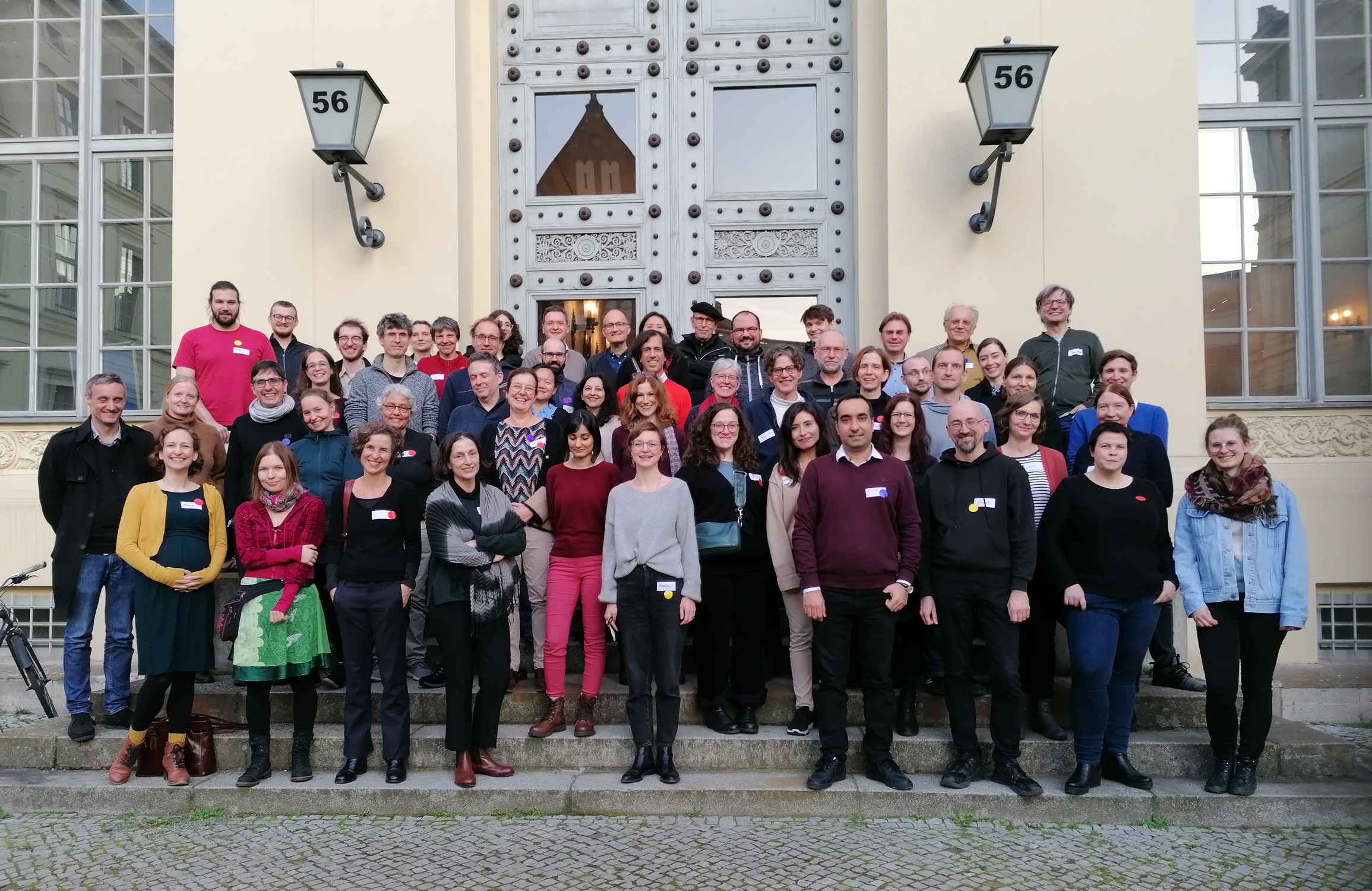Collaborative Research Centre 1412
"REGISTER"
The CRC Register: Language Users’ Knowledge of Situational-Functional Variation investigates aspects of the register knowledge of the speakers of a language. Competent speakers can adapt their linguistic behavior on every level in response to the current situation: They know, for example, that the German word sauer ‘ticked off’ is appropriate in different situations than the word verärgert ‘angry’, that one uses less complex sentences when speaking with children than in an academic function, and that sometimes it matters whether one says around 8 o’clock or 7:49 am, and sometimes it doesn’t. We are thus concerned with intraindividual variation.
Some register knowledge is acquired early – even relatively young children adapt their linguistic behavior to different situations – but at the same time, register knowledge changes and expands over the entire lifespan (especially, but not only, in the case of formal registers). In order to be able to behave register-appropriately themselves and to understand register-appropriate behavior in others, speakers must, on the one hand, know which alternatives (sauer/verärgert, around 8 o’clock/7:49 am) are available and, on the other, understand which situational parameters (properties of the surroundings, properties of the addressee, purpose of the interaction etc.) favor which alternative. Both aspects can change over time, such that register must also be recognized as an essential factor in language change. For an adequate model of linguistic behavior, therefore, register knowledge must be considered together with grammatical knowledge.
The research questions of the CRC are accordingly:
What is the content of register knowledge? How can alternatives be ascertained and described? What situational parameters play a role?
How can register knowledge be suitably modeled?
The CRC investigates these questions on the basis of a range of phenomena on all linguistic levels in diverse languages and language stages. In the process, several different methods (multifactorial corpus analysis, experimental procedures) are employed, extended and combined.





 1
1 1
1 3
3